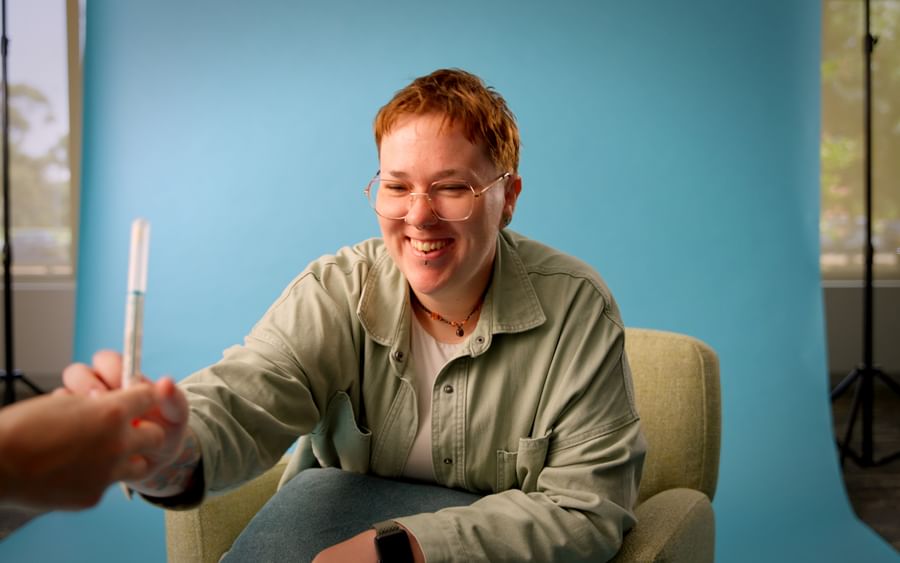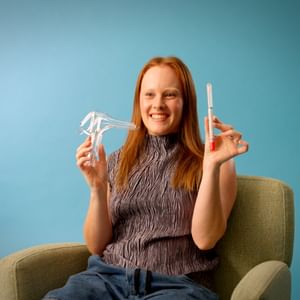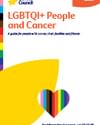Australia has three national cancer screening programs to find early signs of bowel, breast and cervical cancer. The programs use simple tests that are free for eligible people.
It’s also important for all of us, no matter your age, to understand what is normal for your body and if you notice any unusual changes, see your doctor as soon as possible. Learn more about early signs of cancer to look out for.
Cervical screening for LGBTQIA+ people
Cancer Council SA recommends that everyone with a cervix get a cervical screening test every five years from the age of 25.
Regular cervical screening tests give you the best chance at detecting cervical cancer early, as it can detect changes in your body long before cancer develops.
You can do a cervical screening test at a medical clinic or a sexual health clinic, and you can now choose to do the test yourself. There are two ways to get a cervical screening test:
- A doctor or nurse can do the test for you.
- A self-collection test, where you do it yourself using a special type of long handled cotton bud, in private, while at the clinic or at home.
Both of these options are equally safe and effective at finding early signs of cervical cancer.
The test itself is free, but there may be a cost for the appointment. You may prefer to see a gender affirming doctor.
Hear from members of the LGBTQIA+ community about the importance of cervical screening, tips to make a cervical screening appointment safe and comfortable, and what having the option of self-collection for cervical screening means for them.
Breast screening for LGBTQIA+ people
BreastScreen SA provides free mammograms every two years for cis, trans and gender-diverse people aged 40 and over, especially those aged 50 to 74.
It is recommended that women and trans women who have been on hormones (oestrogen) for more than five years, aged 50 to 74, have a mammogram every two years.
AFAB gender diverse and trans folk with breasts, who have not had top surgery, should be screened every two years from the age of 40, especially those aged 50 to 74. If you have had top surgery, talk to your doctor about your personal breast cancer risk and screening options.
If you are masc-presenting, we recommend talking to your doctor about screening so you can discuss your personal risk of breast or chest cancer and screening options. You may prefer to see a gender affirming doctor.
Learn more about breast screening for transgender and gender diverse people.
It’s also important that you regularly check your breasts or chest for changes that could be signs of breast cancer, including:
- a lump or lumpiness
- changes to the skin such as redness, dimpling or puckering
- changes to the nipple such as discharge or nipple inversion (nipple turns inwards)
- change to the shape or size
- pain that persists and isn’t related to your menstrual cycle.
Follow our step-by-step guide to checking your breasts or chest. If you notice any changes to your breasts or chest that are unusual for you, see you doctor as soon as possible.
If you are younger than 40 and have a family history of breast, prostate or ovarian cancer and are worried about your risk, you should speak with your doctor about your screening options.
Bowel screening for LGBTQIA+ people
Bowel cancer is one of the most diagnosed cancers in Australia. If found early, more than 90 per cent of bowel cancers can be successfully treated.
The National Bowel Cancer Screening Program provides free bowel screening test kits to all Australians aged 45 to 74.
The test is easy to do and private. If you are aged 50 to 74, the test kit is mailed to your home every two years. If you are aged 45 to 49, you can request your first free test kit to be mailed to your home. You will automatically receive a kit every two years once you have completed your first test.
To request your first kit, or if you need a replacement kit, order online at ncsr.gov.au or call 1800 627 701.
If you are younger than 45 or older than 75, you will not be eligible for a free home test kit from the National Bowel Cancer Screening Program. Speak to your doctor if you are worried about your bowel cancer risk, or if you have a family history of bowel cancer. You can also purchase a bowel cancer test kit from a pharmacy for around $40.


